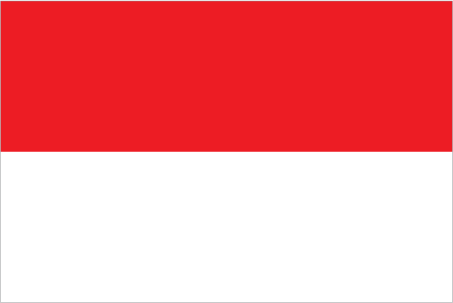To help inspire or plan your trip to Indonesia, some of its major attractions
for travellers are shown below, including some of the best natural, historical, cultural and adventure sites in the country.
These include all of UNESCO World Heritage Sites for Indonesia which represent the best
of the world's cultural and natural heritage.
Click on the icons below to focus on specific types of features
(click again to return to all).
|
|
|
|
|
|
|
|
|
|
|
|
 |
|---|---|---|---|---|---|---|---|---|---|---|---|
| Natural | History | Wildlife | Trekking | Cities | Religious Monument | Boat Journey | Rail Journey | Diving | Cultural | Adrenaline | UNESCO WHS |
Java - Cultural attractions
| Yogyakarta | |
|---|---|
Yogyakarta is the cultural capital of Java with a myriad of cultural influences including 8th century Buddhist and Hindu temples, 18th century Islamic palaces and colonial Dutch architecture. Its main attraction is the Sultan's Palace complex, a huge walled city containing the 18th century Kraton Palace as well as markets and mosques. There are many museums to learn about Javanese history including the Sonobudoyo Museum, which contains an excellent collection of Javanese masks, batiks and puppets. The markets in Malioboro Street offer opportunities to purchase batik, silver and leatherware. Cultural shows in Yogyakarta include gamelan concerts with traditional dancing, Wayang or shadow-puppet shows and Ramayana Ballet, an adaptation of the Hindu epic. | |
Bali - Cultural attractions
| Ubud | |
|---|---|
Ubud is the cultural heart of Bali. Located on the lush slopes of the central mountains, it is home to numerous temples, museums, art galleries and craft centres. Balinese art flourished under the patronage of the Dutch colonisers and is renowned for its high quality and its reflection of Balinese culture and traditions. The surrounding countryside has a number of attractions including the Goa Gajah (or Elephant Cave) which houses a bathing pool and carvings of Shiva and Ganesh, the temple complex at Pejeng, Sumatran elephant rides at the Pujung Kelod Elephant Park or the handicraft villages near the city. | |
| The Subak System | |
|---|---|
The Subak is a cooperative water management system of canals and weirs in Bali that reflects the philosophical concept of Tri Hita Karana, which brings together the realms of the spirit, the human world and nature. The site comprises five rice terraces and their water temples including 18th-century Royal Water Temple of Pura Taman Ayun, the largest and most impressive architectural edifice of its type on the island. This democratic and egalitarian farming practice has enabled the Balinese to become the most prolific rice growers in the archipelago. UNESCO World Heritage Site: Cultural Landscape of Bali Province: the Subak System as a Manifestation of the Tri Hita Karana Philosophy | |


